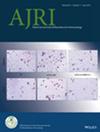Reproductive Outcomes of Women With Endometrial Fluid During IVF-ICSI Treatment: A Single-Center Experience
Abstract
Objective
To retrospectively evaluate whether endometrial fluid detected at transvaginal ultrasonography on the third day of the menstrual cycle in infertile patients undergoing in vitro fertilization/intracytoplasmic sperm injection–embryo transfer (IVF-ICSI/ET) affects pregnancy outcomes.
Methods
A total of 148 patients who had undergone IVF-ICSI between 2010 and 2017 were included in this study. The participants were stratified according to the presence of endometrial fluid: Group 1 (control; n = 74) consisted of women without endometrial fluid and Group 2 (study; n = 74) of those with endometrial fluid. Baseline sociodemographic characteristics and reproductive outcomes were compared between the groups.
Results
No difference was found between the groups in terms of age, body mass index, smoking rates, duration of infertility, etiology of infertility, baseline follicle-stimulating hormone, luteinizing hormone, estradiol, thyroid-stimulating hormone, and prolactin levels, duration of stimulation, stimulation protocol, antral follicle counts, total gonadotropin doses, peak E2 and progesterone levels on the day of human chorionic gonadotropin (hCG) administration, or endometrial thickness at hCG administration and the day of transfer (p > 0.05). The number of oocytes retrieved, metaphase II oocytes, two pronuclei, fertilization rates, and the rates of Grade I embryos per woman, as well as pronucleus counts, were comparable between the groups (p > 0.05). However, the clinical pregnancy rate (CPR) (47.3% vs. 31.1%) and live birth rate (LBR) (41.9% vs. 24.3%) were both significantly lower in women with endometrial fluid compared to the control group (p < 0.05).
Conclusion
This retrospective cohort study shows that the women with endometrial fluid in their IVF-ICSI/ET cycles exhibited lower CPR and LBR. Further prospective studies are needed to confirm the validity of our results.

 求助内容:
求助内容: 应助结果提醒方式:
应助结果提醒方式:


